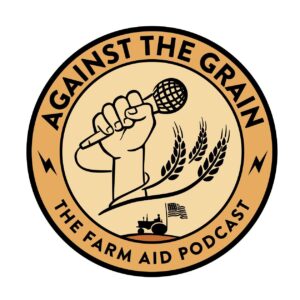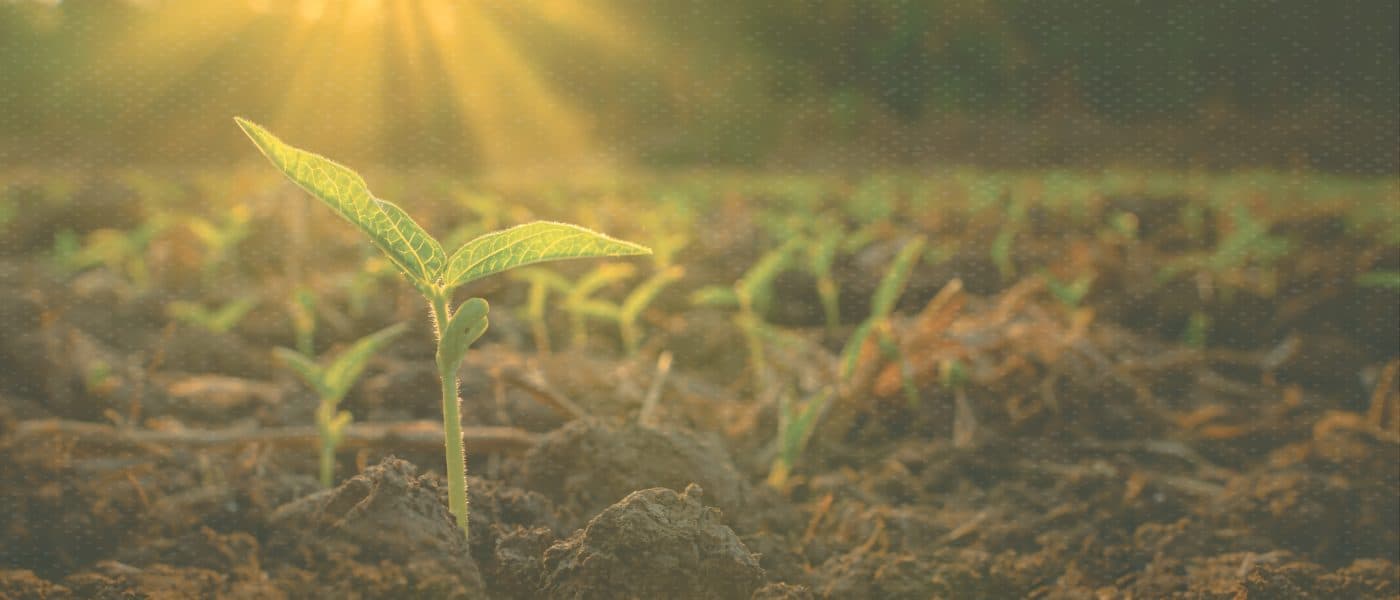Festival season is a busy time, so post-festival Farm Aid staff members look forward to catching up on all the things we’ve missed while focused on the big show. Here’s a peek at some of the farm and Farm Aid-related entertainment I’ve been enjoying lately.
Listening
Music
Farm Aid 2024 was an incredible assemblage of musical talent. As is often the case, festival-goers were buzzing the day after from the discovery of a new-to-them artist. For so many Farm Aid fans, that was singer-songwriter Joy Oladokun, whose new album, Observations from a Crowded Room, dropped last week. Joy’s unique voice and brave (and simultaneous) vulnerability and strength will break your heart, then lift it up (and even move you to dance!), and inspire you to look inward and connect outward.
Podcasts
As we count down to Election Day (here’s your reminder to be sure to VOTE before polls close on Tuesday, November 5th!), we’re enjoying the latest episode of The Only Thing That Lasts, Sarah Mock’s podcast on the myth, money and emotion surrounding American agriculture. Episode 5: Raise Less Corn and More Hell takes a look at the farmer-led movements of the late 1800s that led to Populism, viable third party candidates (challenging the stranglehold of our two party political system), and political awakenings that pushed the progressive envelope. Not just a look back, this episode includes an interview with J.D. Scholten, a current-day Populist working for antitrust enforcement and other policies that would level the playing field for independent farmers struggling to compete in today’s corporate controlled agricultural system.
Speaking of populist movements, check out the new podcast from our friends at the Campaign for Family Farms and the Environment (a coalition including Missouri Rural Crisis Center, Iowa Citizens for Community Improvement, Dakota Rural Action, Land Stewardship Project, Institute for Agriculture and Trade and Food & Water Watch). This four-part series, How to Fight a Factory Farm, directly takes on the corporate narrative about factory farms and corporate control. It features the voices of farmers and rural residents who have led fights to protect their rural communities from the relentless and greedy advance of industrial agriculture.
Reading
I am digging into Sonja Trom Eayrs’s book Dodge County, Incorporated: Big Ag and the Undoing of Rural America, which comes out November 1 (stay tuned for a full review!). Sonja shares the story of her parents, who led frontline factory farm battles in Minnesota, and tells the larger story of modern, industrial-scale factory farming. Her thorough research covers factory farm air pollution, cancer clusters, water contamination, and the metamorphosis of thriving economies into bleak commercial zones marked by the absence of grazing animals and the closure of small-town schools, churches and businesses. Sonja eloquently describes the effects of Big Ag that are rarely discussed in mainstream food and farm media, including the hollowing-out of rural communities, the steady unraveling of the fabric that once stitched neighborhoods together, and the erosion of democratic values in service to the corporate bottom line.

As Sonja told me, “I know that my family is not alone and that there are so many farm families who have been negatively impacted by industrial agriculture. I really hope that the story resonates with others and allows them to come forward and tell their stories, too. Professionally, I am a family law attorney and have worked with so many families over the years. In doing so, I have heard so many painful stories, but I frequently encourage my clients the importance of telling their story. So, I decided it was time to take my own professional advice and tell our story. This has been a very painful book to write, but in doing so, I have actually found healing.”
Watching
Somebody, Somewhere returns to HBO for season three this weekend. The show beautifully portrays the complexity of rural identities that rarely gets air time, featuring Bridget Everett and Murray Hill. Somebody, Somewhere won me over with Murray Hill’s perfect portrayal of an extension agent carefully navigating the depths of human emotion with a farmer (the dad of Bridget Everett’s character Sam) who buries his human emotions in his corn crop. A show about rural Kansas that makes me laugh and cry, while bringing me complicated, hilarious, beautiful rural neighbors I’d love to call friends? Ten more seasons, please!

Have you been listening, reading or watching anything that you think we should know about? If so, drop us a line and let us know your suggestions for farm and rural related content we should add to our Must Consume list!

 Against the Grain brings the magic of Farm Aid’s annual festival to listeners year-round. Hear from farmers and artists, advocates and food experts, activists and policymakers – all of whom are working towards building a more just and equitable farm and food system.
Against the Grain brings the magic of Farm Aid’s annual festival to listeners year-round. Hear from farmers and artists, advocates and food experts, activists and policymakers – all of whom are working towards building a more just and equitable farm and food system.


